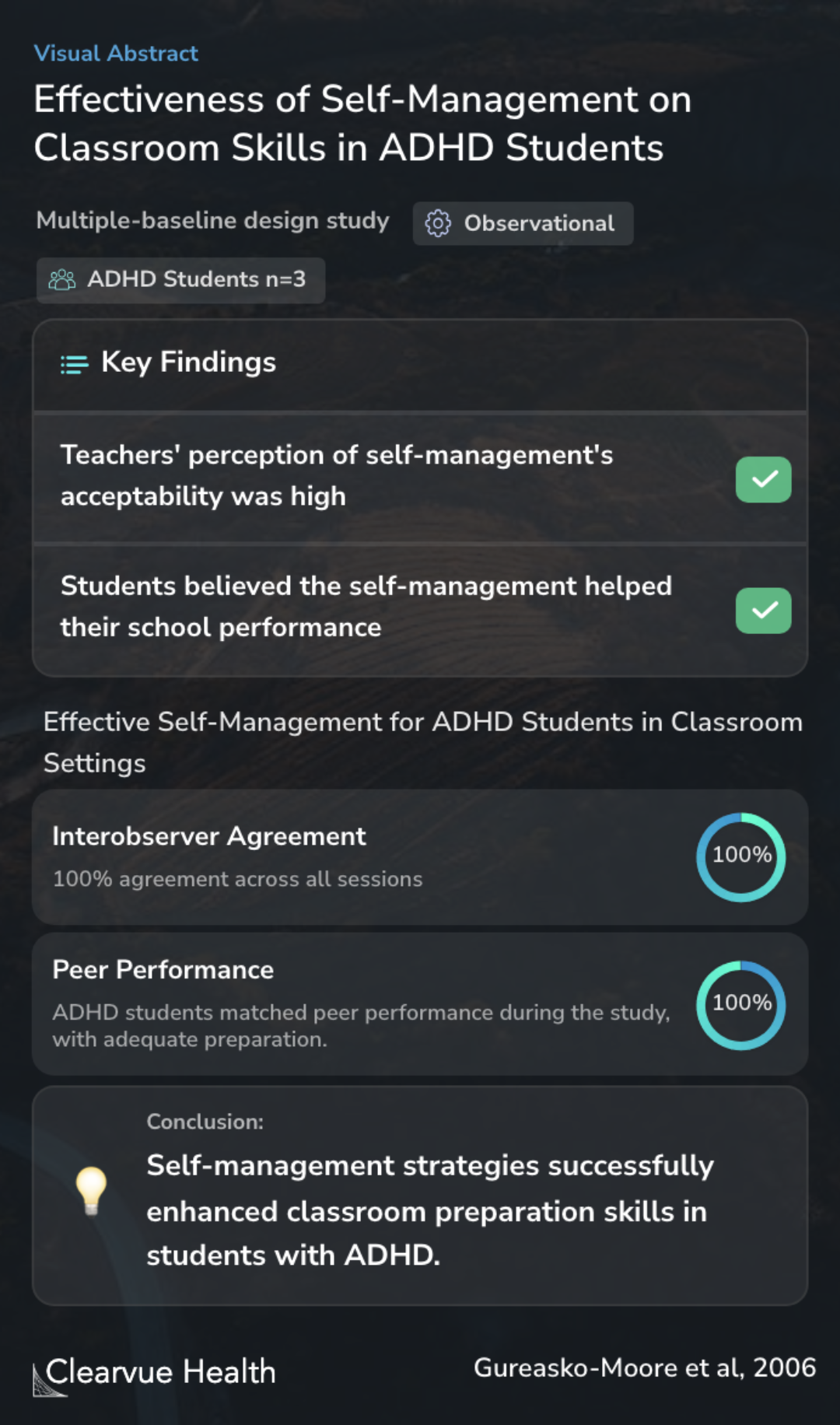The effects of self-management in general education classrooms on the organizational skills of adolescents with ADHD
Effectiveness of Self-Management on Classroom Skills in ADHD Students
Gureasko-Moore S, Dupaul GJ, White GP

Objectives
Self-management techniques are known to help reduce problems and promote good behavior in school settings. This study used a special type of plan called a multiple-baseline across participants design to see if self-management methods could help secondary school students with attention-deficit/hyperactivity disorder (ADHD) get better at getting ready for class.
Self-management procedures have been used in school settings to successfully reduce problem behaviors, as well as to reinforce appropriate behavior. A multiple-baseline across participants design was applied in this study to evaluate the effects of using a self-management procedure to en...
Methods
In the methods section of this paper, the study focuses on three male students from a public secondary school chosen due to their teachers reporting that they were not well-prepared for class and didn't consistently complete their homework. The study's approach involved training these students in self-management techniques aimed at improving their skills in preparing for class. Once the students learned these techniques, the level of direct training they received was gradually reduced.
Three male students enrolled in a public secondary school were selected for this study because teacher reports suggested that these students were insufficiently prepared for class and inconsistently completed assignments. The intervention involved training in self-management procedures f...
Results
The findings from the study showed that all three students improved their classroom preparation skills. This improvement was observed consistently across all three participants, demonstrating the effectiveness of the self-management training they received.
Results were consistent across the 3 participants in enhancing classroom preparation behaviors.
Conclusions
The study showed that teaching students with ADHD how to manage themselves helped them get ready for class better.
Implications for practice and future research are discussed.
Evidence Comparison
The findings from the study reflect established practices in ADHD management, which emphasize the importance of behavioral therapy and educational interventions. For example, current evidence supports the use of Behavioral Therapy as a foundational approach in managing ADHD. This aligns with the study's application of self-management strategies, which are a form of behavioral therapy, to help students with ADHD improve their readiness for class. Moreover, the recommendations for school-aged children include behavioral classroom interventions, which are echoed in the study's focus on enhancing classroom preparation skills through self-management.
Key Takeaways
More Articles
For those intrigued by the effects of self-management strategies on students with ADHD, a related study examines the longer-term impacts on student performance and psychological well-being. This research offers a broader view of how such strategies can extend beyond immediate classroom benefits, enriching our understanding of their role in educational psychology.
Additionally, another article examines the specific challenges that ADHD presents in terms of organizational skills. This study highlights how deficits in working memory contribute to these challenges and how targeted training can enhance organizational capabilities, providing further insight into the comprehensive treatment and management of ADHD.